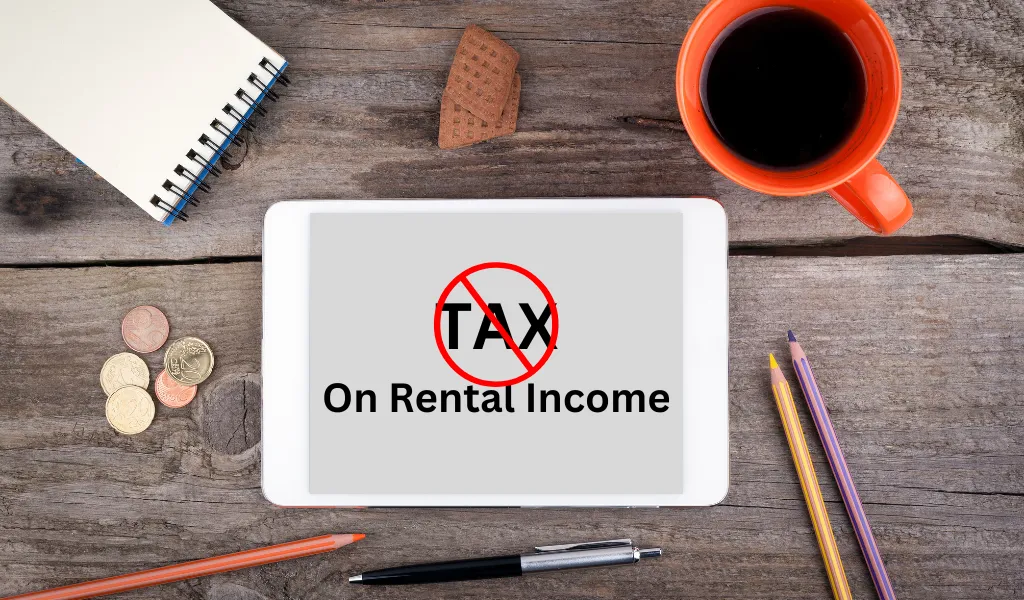When you step into the world of property you are surrounded by tax bills. There is no avoiding them, they are inevitable. Not to mention, complex. That is why it is best to know how you can reduce those hefty tax bills. Of course, no one wants to deal with paying large amounts of tax. That is why, this guide will cover seven ways to avoid paying tax on rental income. Before we discuss these methods, let’s talk about paying tax on rental income. The amount of tax you owe depends on the tax bands.
Once you calculate your expenses and gains or losses, you can figure out which tax band you fall under. That tax band will indicate the percentage of income tax. Therefore, it is necessary to calculate the amount of tax you owe as accurately as possible. Otherwise, you will end up paying a lot more tax than necessary.

Seven Ways to Avoid Paying Tax on Rental Income in the UK
Here are the methods you can use to reduce your tax bill on rental income:
1. You Can Claim all Expenses
A common way to reduce your tax on rental income is to claim all expenses. The question arises which expenses qualify for reduction. You can claim the following costs to lower your tax bill significantly:
- Management and letting agent fees.
- Expenses you paid for advertising for tenants.
- Service taxes.
- Accountant’s fees.
- Ground rent.
- Property owner insurance. This includes public liability, contents, buildings.
- Gardening and cleaning fees. That is if you paid for it.
- Phone calls and stationery that you used for business purposes.
If you want to make sure that the rent is reasonable, then you must figure out the amount of space your business needs. Next, you must calculate your monthly outgoings. You do this for the expenses you wish to claim. After which you divide that number by the percentage of rooms you use for business purposes. In most cases it is only one room. Suppose you own a home with six rooms, and one of the rooms is your office. In that case, the rent is based on one-sixth of the qualified expenses.
2. You Can Create a Joint Ownership
You also have the option to purchase rental property with other investors. This is ideal if you cannot afford to buy property by yourself. Before you invest with a partner, you should know the tax detail of joint ownership. How does income tax apply to each partner? Well, to calculate your income tax as a partner, all your incomes are added together. Please not that the amount of refundable security that tenants pay are not part of the income. The tenants will get it back. Security is its sole purpose. It will come in handy when there is any damage caused by the tenant.

You can form a joint ownership with your spouse or colleague. Or any businessman for that matter. It is a common misconception that in joint ownership the rental income is distributed according to ownership. If the ownership is split 50/50, then so will the rental income. That is not true. There are certain situations where the income is distributed in varying proportions. Therefore, each party gets tax benefits.
3. You May Form a Limited Company
When you own a property individually, you earn more income which results in more tax coming your way. Do not worry as there is a solution for it. You can establish a limited company. Yes, you can build a limited company for your rental properties to avoid hefty tax charges. You will then pay corporate tax and not individual tax. As the owner you can pay yourself from the company. This is because now the limited company owns the property. Rental charges also change because of the change in ownership. Undoubtedly, there are plenty of tax advantages of a limited company. However, it requires a lot of time. You should consider the pros and cons before you decide to go for this option. If your tax bracket is high and your plan involve property investment, then you can use this method.
Moreover, you will not need to pay inheritance charges, stamp duty, etc. Not to mention that there is limited liability for the use of such a company. Of course, there are drawbacks as well. For example, you have more responsibility as the owner. Additionally, you will have to pay costs of switching the company. If you take profits out of the company, then you will end up paying income tax. It is according to the present laws.
4. You Can Reduce by Extending Existing Property
You can also invest in your existing property or properties. This will help you avoid heavy stamp taxes. Not only this, but it will also increase your portfolio’s value. Thanks to the amendments in development rights, you can extend your property further than you could before. Therefore, your monthly income will increase. Furthermore, you can make real gains through extending your property.
Remember, you must consider the celling price of the area in which your property lies. While this all well and good, changes to HMO rules can impact your property. Therefore, you should know the seven ways to avoid paying tax on rental income.
5. Rent Out to Short-Term Tenants
You can also reduce your tax bill on rental property if you are between tenants. During this time, you can claim utilities and council tax. Sometimes, it is good to consider finding a tenant for a short time to cover up a void period. That way you can generate income for those voids. A period of twelve months or more is long-term.
There are disadvantages of long-term tenants. For example, the rent is fixed for that period, and you cannot increase it. Additionally, it is difficult to fix maintenance and repair issues well before time. As a result, you face a lot of expenses and even losses. As per the tenant’s rights, you cannot terminate the agreement before the duration is over. You can avoid all these problems by finding short-term tenants. Yes, long-term tenants mean predictable income and efficient management. However, short-term tenants are still preferable. A day, a week, or a month are all short-term. As the owner, you can set the rent rates according to the market.
With a short-term rent you can generate twice the profit as compared to long-term tenants. Furthermore, maintenance is easier to do on time. Thus, you should know the seven ways to avoid paying tax on rental income.
6. You Should Utilise All Available Tax-Bands
As a property owner you pay tax on your rental property as per the tax bands for income tax. These bands are subject to change according to government policy. They are not different from any other tax bands. You must calculate which band you fall under at the end of the financial year. You can find out your tax band by calculating and deducting all the expenses.
A percentage of income as tax belongs to each band. If you have other sources of income aside from the rental property, then you must add all of them for calculation. Make sure to calculate the expenses and losses accurately. This way you fall under the lowest tax band possible. 0% tax applies for those whose gross incomes is less than the basic rate of tax band. However, a slight mistake can lead to you paying a lot of tax. Another method is to transfer your property to your spouse. Only do this if their income tax bracket is less than yours.
This transfer works from both ends. Initially, the tax lowers the minutes it transfers onto your spouse’s name. Then, it lowers the tax on your property as you fall under a lower band of tax. Therefore, make sure that you understand the seven ways to avoid paying tax on rental income.
7. You Can Carry Forward Losses
On an annual basis, you can mention all the expenses on tax returns. It is not always a possibility. This is because the current year’s expenses do not always come on the same year’s tax return. It is ideal to carry forward expenses for the next year tax return. Unless expenses such as repairs, depreciation, transportation, and any other taxes are not final. This is especially true if you are facing loss.
In case you own more than one rental property, you should calculate loss and gains from all of them. If your total is a loss, then you must make sure to carry it forward. For that you must own at least 10 pc of rental property. Under the circumstance that you fail to mention all loses, you must carry them forward again. If you use your property for personal reasons, then you cannot claim the expenses for that period. This includes for using it during holidays. If you only rent your property for six months of the year, then you can only claim losses and expenses for those six months. Now, you understand the seven ways to avoid paying tax on rental income.
Conclusion
Tax is a complex matter. That is why it is best to fully understand how it works. Surely, no one wants to pay a huge amount of tax. This is where all these methods come in handy. They will reduce your tax bill significantly. Before you make any investment decision, it is ideal to reach out for professional advice.


